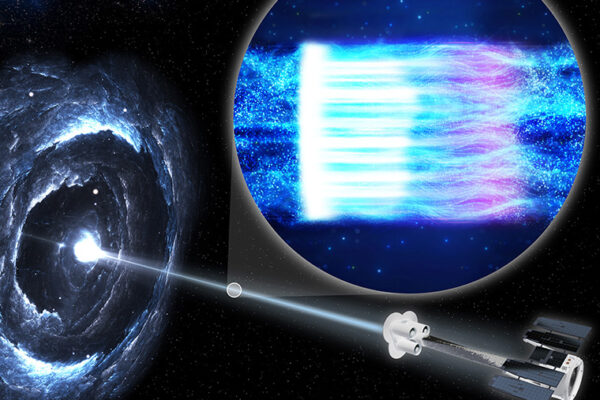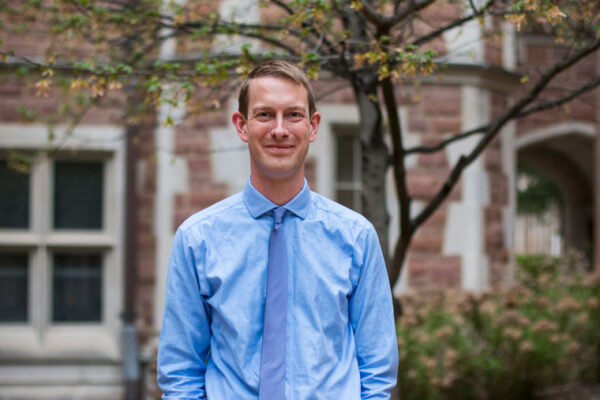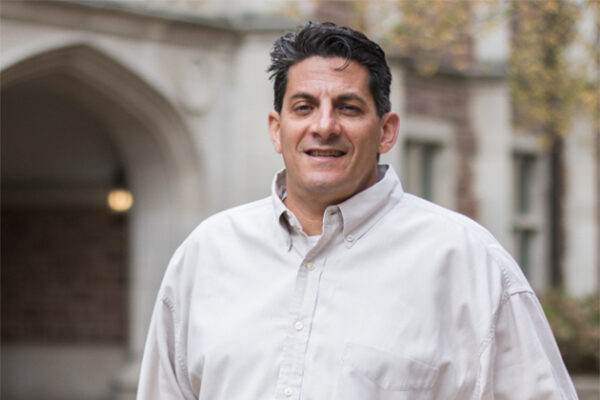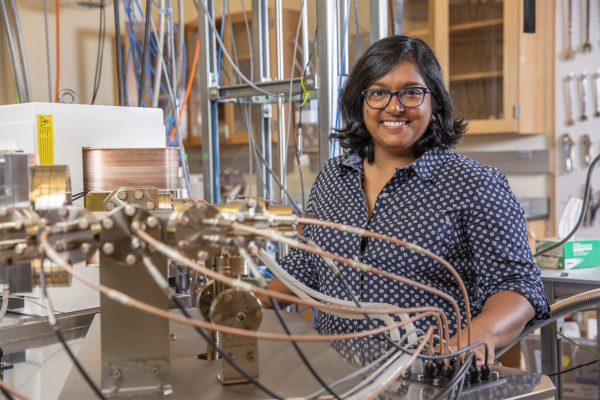Birman receives American Chemical Society award
Vladimir Birman, an associate professor of chemistry in Arts & Sciences, won a $110,000 award from the American Chemical Society’s Petroleum Research Fund.
Physicists awarded DOE supercomputing time for ‘high-impact’ projects
Alex Chen, Saori Pastore, Maria Piarulli and Yajie Yuan, all in Arts & Sciences, will pursue transformational advances in their fields using the Department of Energy’s leadership-class supercomputers.
Physicist Errando helps NASA solve black hole jet mystery
Manel Errando in Arts & Sciences is part of a team that determined that particle acceleration within black hole jets is best explained by a shock wave within the jet.
Hill receives grant for healthy aging research
Patrick Hill, in Arts & Sciences, received a three-year $237,970 grant from Velux Stiftung, a Swiss science-funding foundation, for research on future time perspective as a motivator for healthy aging practices.
Skemer wins grant from the National Science Foundation
Philip Skemer, a professor in Arts & Sciences, won a $321,515 grant from the National Science Foundation to support collaborative research on subduction zones.
Braver receives NIH award to study aging effects
Todd Braver, a professor of psychological and brain sciences in Arts & Sciences, received a $442,135 grant from the National Institutes of Health (NIH) to study aging effects on the neural coding of proactive and reactive cognitive control.
NSF grant supports development of GPS-free, secure communication
A $300,000 grant from the National Science Foundation will support Shantanu Chakrabartty, at the McKelvey School of Engineering, as he works to develop GPS-free, encrypted self-powered communications.
An alternate route to semiconductor production
Research from the laboratories of Bryce Sadtler in Arts & Sciences and Rohan Mishra at the McKelvey School of Engineering offers a cheaper and more efficient pathway to semiconductor production using electrodeposition.
Parai wins U.S. Department of Energy grant
Rita Parai, assistant professor of earth and planetary sciences in Arts & Sciences, won a $450,000 grant from the U.S. Department of Energy’s National Nuclear Security Administration.
Hatoum wins NIH award
Alexander Hatoum, a research assistant professor of psychological and brain sciences in Arts & Sciences, won a five-year $897,120 award from the National Institutes of Health (NIH)’s National Institute on Alcohol Abuse and Alcoholism.
View More Stories







